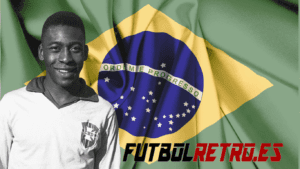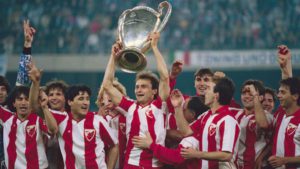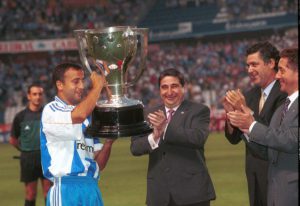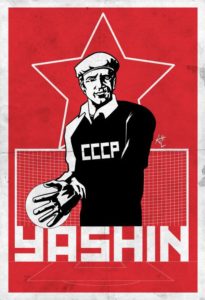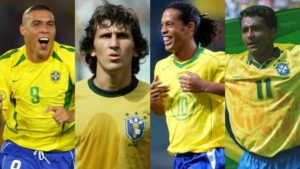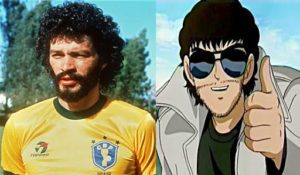Socrates and the "Corinthians Democracy’
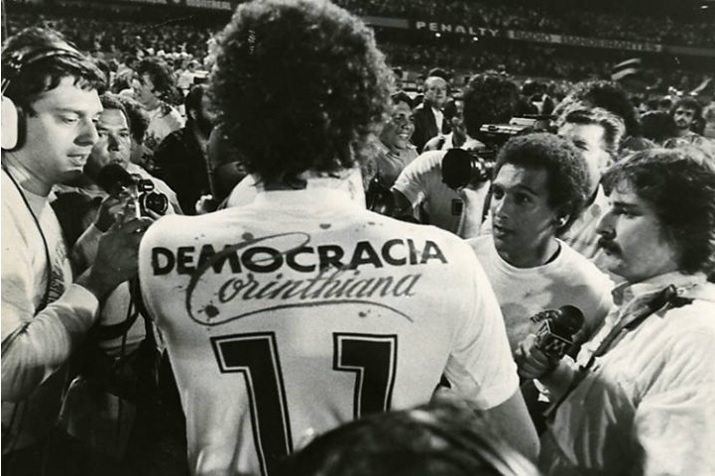
Football, the sport that moves millions amounts, who is accused of being half the bread and circuses of the XXI century and which it is capable of generating feelings that go beyond the merely rational, He was able to give a lesson in democracy and collective self-management to the dictatorial Brazil in the early 80. But nevertheless, If we turn our gaze to the world of football today, in which the Spanish and English league have bank name, where premium contracts that are signed more economically than sports, and where, definitely, They are losing the values that brought football to be a great mass movement, it seems impossible that just over 30 years a team of football may plant the face of a dictatorship and was inspiration for an entire country. That's what happened in South America plagued by military dictatorships; we talk about Corinthians Brazilian, we talk about Corinthians democracy.
HISTORIC CONTEXT
But before analyzing the corinthiana experience we must establish historical lines that allow us to know in what context we move. It is necessary to go back to 1961, when Joao Goulart, member of the Brazilian Labor Party became president of Brazil betting on a policy advocating greater state involvement in the economy in order to develop agricultural policies, industrial and educational that the country needed. But Brazil would suffer the same fate as many of its neighboring countries and only three years after the democratic victory of the Workers Party in Brazil a coup that ended the progressive experiment and placed the military in power took place. These soldiers were directing the designs of the millions of Brazilians in the early decade of the 80, although as a result of the loss of international support, the regime was forced to compromise on certain plots and launch messages aperturismo, an example being the holding of elections. But obviously it was an election in which the vote was not direct, where the process was controlled by an electoral commission and where, Thus, the victory of the candidates opposing the military, It was unfeasible.
It is in this context that begins to take shape the Corinthians democracy. The Sport Club Corinthians It was one of the great Brazilian teams, but in recent 25 years had only won two titles, very poor results for a squad that history and followers was forced to fight for every title that had at its disposal. This very poor situation began to change with Waldemar Pires, who became president of the club 1981 and she decided to hire for the position of "Director General of Football" to Adilson Monteiro Alves, a sociologist, former university militant, which he laid the foundations of the Corinthians Democracy, an experience that, despite their efforts, It would not have developed without the presence in the team of four key players: Walter Casagrande, Zenon de Sousa, Wladimir Rodrigues and one of the greatest players who has given football history: Socrates.
SOCRATES, 'THE DOCTOR’ FOOTBALL
Turn away for a moment of corinthiana experience and dedicate a few words to Socrates It is absolutely necessary, as, without him, probably it would not have developed the topic at hand. Socrates Brasileiro Sampaio de Souza Vieira de Oliveira was certainly an atypical player. Just as demonstrated quality with each pass that gave on the pitch, with each heel that generated an impossible or kissing each play goal nets without the shot could do anything about it, He had gotten his degree in medicine, a career that has combined with his interest in philosophy, the art, culture and politics, a cluster of factors that caused that it received the nickname The doctor.
As advance, Socrates was one of the great promoters of the Corinthians Democracy a model of self-management that was organized by holding meetings in which the coach, President, the star of the team and had the same power utillero: The vote. In these meetings issues were decided as training schedules, holding concentrations before games, budget allocations, signings and departures or continuity coach. It was a revolutionary situation unprecedented in football, something which follows from the words of footballer: "We abolished the process that existed in football, where leaders prevented players do adults. At the beginning there was anxiety in my classmates, They were not accustomed to express, let's decide. But they were learning and prepared to face his profession and his life ".
The reflection of this administration in a group of young players tired of dictatorship was simple: "When we entered the court, we played much more than a simple game. We fought for freedom in our country ". Perhaps it was this that led to Corinthians to be crowned champion Championship en 1982, something that was accompanied, as a result of good management, obtaining economic benefits that served, not only to pay off the club's debts, but to obtain a surplus of 3 million euros ahead of the next season.
But the ideologues Corinthians democracy They did not merely establish a democratic club management, but they began to actively participate in the country's politics. Own Socrates he played with a tape head that used to decorate with political messages, but the club stepped forward and decided to support the candidacy for governor of Sao Paulo declared an aficionado of Corinthians, Jose Ignacio Lula da Silva, who eventually went on to become President of Brazil and today pays in prison resentment of the children of those soldiers who cut the legs to Brazilian society. In this way, during the season 1983, players took messages on her t-shirt, challenging the dictatorship, Paulistas exhorting citizens to vote in the gubernatorial elections. But nevertheless, This was only the first step, as the largest show of political activism was still to come.
Win or lose but always with democracy”
Senator Theophilus Varela began a movement called Diretas Já seeking elections with universal and direct suffrage for the election of the President of Brazil. The four major players in the Corinthians, Socrates, Vladimir, Zenon and Casagrande, They took part in demonstrations, even to take the stand after one of the demonstrations and deliver a speech in front of a million Brazilians who lined the streets of Sao Paulo. However, the most significant event took place at the end of the Tournament Paulista 1983, a final that faced two rivals, the Corinthians and the Sao Paulo. Tima, nickname which is known to Corinthians, He jumped onto the pitch with a large banner that read the following: "Win or lose, but always with Democracy ". The stadium, packed with fans, went mad, and the cries of democratic yearning resonated throughout the entire country. Spurred on by the fans, the Corinthians He won with a goal by Socrates, Tima and Doctor not only entered the history, but they became legend.
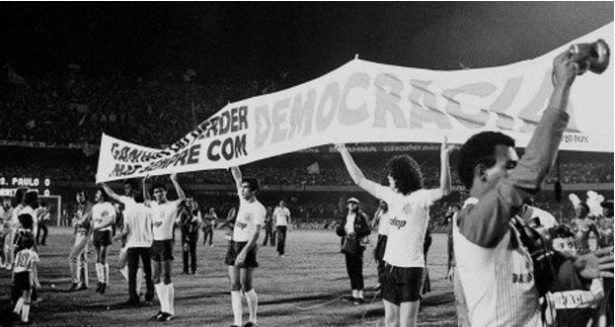
In 1984 Socrates He declared that he would leave Brazil if the Parliament did not approve the holding of direct elections, and even though the majority of the House voted in favor of holding them, not the two thirds needed for approval were met. Socrates carried out his threat and left the country towards the Fiorentina, thus beginning the beginning of the end of the corinthiana Democracy. Ronaldinho, who said that "Football win the luxury of allowing the worst was" and that therefore there was no "Nothing Gramscian Marxist or that football", eventually he died in 2011 victim of cirrhosis caused by years of addiction to drink.
The lanky player, that measuring 1.91 and having a 37 standing he scored a penalty even heels, He had said in 1983 I wanted to die on Sunday and the Corinthians champion. He died on a Sunday morning and that evening the Corinthians He won the Paulista tournament, Things of destiny. A fate that gave Socrates a worthy end of the legend that became that day, maximum exponent of the Corinthians Democracy, He revolutionized a stadium that craved, even more than the victory of his team, the advent of democracy.


